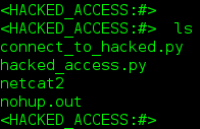Category Archives: Operating Systems
asdf for Managing Multiple Tool Runtime Versions
If you read my prior blog posts, Managing Multiple Python Versions and Packages and Managing Multiple Python Installs and Packages with Pyenv and Pipenv, you’re aware of how I prior used Pyenv and Pipenv to install, manage, and use multiple … Continue reading →
Managing Multiple Python Installs and Packages with Pyenv and Pipenv
I wrote a blog last year titled “Managing Multiple Python Versions and Packages.” In that blog post, I discussed how you can easily deploy and manage multiple python versions and packages without running into issues later on. Here I go … Continue reading →
Managing Multiple Python Versions and Packages
After spending a solid afternoon researching and working on deploying multiple Python versions and packages, I realized how much confusion and lack of authoritative posts exist on this subject. There are lots of opinions and suggestions out there which may … Continue reading →
6WIND – From Data Plane Acceleration to Virtual Appliances
6WIND is an interesting company I’ve been following for some time now, initially out of curiosity, and then out of more curiosity :-). They first started as a networking software company claiming to solve performance challenges for software defined networks … Continue reading →
Minecraft for $2.5 Billion – Yes, ‘the App’ is King
I’m still not completely over the shock from last November when I learned Microsoft had bought Mojang, the company behind Minecraft, for $2.5 billion dollars. Let me repeat that: “$2.5 BILLION”; you heard right. Markus Persson, the 35 year-old original … Continue reading →
Security, Art of Hacking, & the Worst 2014 Security Breaches
Security is hot; no doubt about it. Consider the fact that between 2011 and 2013, venture investors put nearly $3 billion into cyber security companies, resulting in new funding for some 300 firms (Source: Thomson Reuters). Worldwide security software revenue … Continue reading →
Mac OS X: Java – “Application Blocked by Security Settings” Solution
Starting with Java 8 Update 20 (Java 8u20) and later versions the option to lower the security setting in the Java Console Panel to Medium has been removed. Prior, changing the setting to Medium would quickly resolve issues where certain … Continue reading →
Customize the Mac Terminal Shell Prompt in OS X Yosemite
The Mac prompt is defined by the ‘PS1’ environment variable which can be defined in the ‘.bash_profile’ hidden file. To customize your Mac Terminal Shell Prompt in OS X Yosemite, follow the below steps.
BASH Shell Scripting: Passing Arguments to a Python Script
Larry Wall: “Shell programming is a 1950s juke box …” In this short blog I write a small Python utility script to create directories and demonstrate how to utilize it and pass it arguments via BASH shell script. The functionality … Continue reading →
MariaDB and the Future of MySQL
As you may know by now, since the acquisition of Sun Microsystems by Oracle in 2009 for $7.4 billion, there has been some uncertainty in the industry on the future of MySQL which Sun Microsystems itself acquired for $1 billion … Continue reading →



 Twitter
Twitter LinkedIn
LinkedIn Youtube
Youtube RSS
RSS